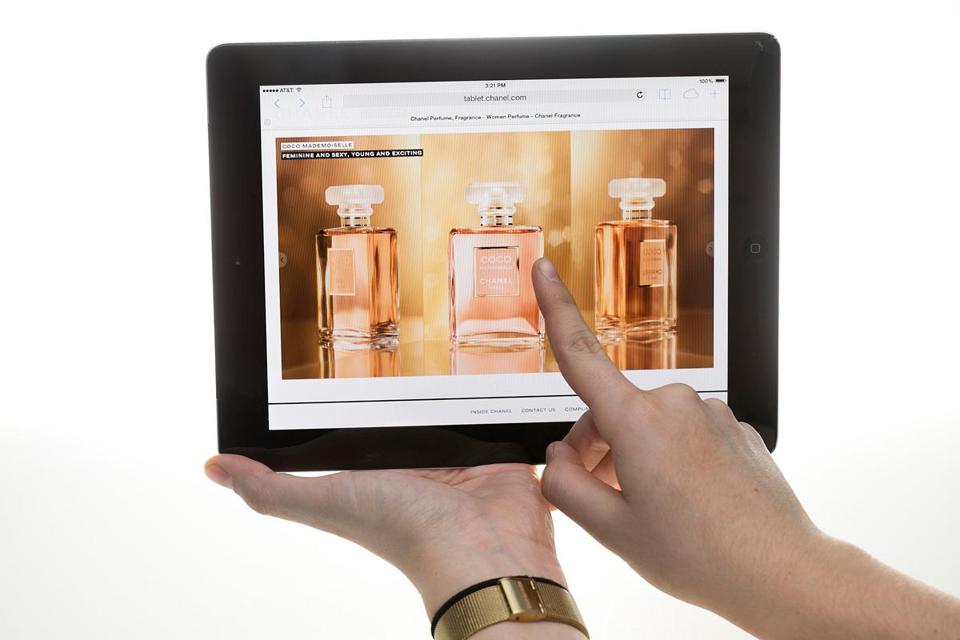By Miva | December 19, 2013

See why top ecommerce brands use Miva’s no-code platform to run
multiple stores, manage massive catalogs, and grow their revenue.
This year, more than any year prior, touch devices are accounting for more online sales. Purchases made via smartphone and tablets are nearing one-third of all online sales, according to retail analysis firm NPD Group Inc. It turns out that there is more to this than just convenience of mobility. New research out of Boston College found that consumers are purchasing more on these devices because the action of touching the screen gives them a higher affinity for the product and, in turn, is translating into sales. Consumers who are an iPad to shop online have a higher rate of impulse buys than a consumer perusing the web on their laptop.
“The core thing that we’re starting to work on is this idea that the interfaces that people are using to access content can really fundamentally change the way we see that content,” Brasel tells Co.Design.
Humans feel ownership for products that they touch. So brick-and-mortar stores have had the advantage on ecommerce due to the customer’s ability to touch the product. That was until the evolution of mobile devices. The researchers at Boston College found that consumers who were participating found that the experience of reaching out and touching a product on their tablet screens gave them a very similar gratification to reaching out and touching the merchandise in a store. Simply imagining touching the product gave consumers the same possessive feelings as consumers actually touching the product.
“It’s kind of surprising how strong the effect is,” said S.Adam Brasel, a Boston College business professor and lead author of the study. “And we’re not necessarily aware it’s taking place.”
Not only do consumers feel ownership to the products that they touch on tablet screens, but they also feel the worth of the product to be higher, as compared to the consumer shopping on a laptop.
“I think our impulse levels might be a little harder to control when we’re tablet shopping than when we’re computer shopping,” says Brasel. “We’re just touching it. It’s right there. We already feel like we own it.”
Online shoppers feel more drawn to products selected on a touchscreen than they do on desktop screens, simply by the way that they can interact with a product. Online retailers are finding more an more ways to help consumers feel affinity with the products in their stores. There are several ways to do so including product photography, 360-degree product rotation, descriptive reviews, and many others.
“They used to say nobody would ever buy a diamond online. Not true. People are even buying homes without seeing them [in person] online,” Marshal Cohen, a retail industry analyst at NPD Group, said. “We are entering a period where we’re using our imagination rather than touch, feel, or smell. We’re using our brain differently.” Some surveys of online shoppers have reported that people believe they can imagine the smell of a perfume while shopping for scents online, for example, Cohen said.
John Wells, an associate dean at the Isenberg School of Management at the University of Massachusetts Amherst, is an expert at making customers react on impulsive buys. Wells patented Amazon.com’s one-click online checkout, which allows customers to purchase with just 1 click.
As different forms of ecommerce emerge, online retailers are benefiting from the fast pace in technology. Consumers can buy where they want, when they want, and how they want.
Image Credit: YOON S. BYUN/GL
Back to topNo worries, download the PDF version now and enjoy your reading later...
Download PDF Miva
Miva
Miva offers a flexible and adaptable ecommerce platform that evolves with businesses and allows them to drive sales, maximize average order value, cut overhead costs, and increase revenue. Miva has been helping businesses realize their ecommerce potential for over 20 years and empowering retail, wholesale, and direct-to-consumer sellers across all industries to transform their business through ecommerce.
Visit Website